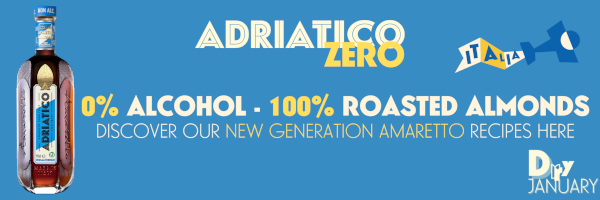Are you a Discerning Drinker?
Join thousands of like-minded professionals and cocktail enthusiasts, receive our weekly newsletters and see pages produced by our community for fellow Discerning Drinkers.


I D
United Kingdom
Recipes
Collections
Badges
Latest comments
Showing 4 of 49
View all comments
Made using Larios London Dry Gin, other ingredients as specified. Absolutely loved it, a perfect balance between sweet and bitter. I've struggled with a standard Negroni, wanting to like it but the Campari not liking me. This, however is delicious!
from the second link:
"The lower-right datapoint is very close to 100 °C, and shows the first-order rate constant for sucrose hydrolysis is about 10(exp−6) per second. That means that 63% degradation would take 10(exp6) seconds, or about 11.5 days. Getting 99% degradation would take about 53 days."
In layman's terms, heating a mixture of refined (white) sugar in clean water, hot enough & long enough (a few minutes on a moderate heat setting - there's no need for prolonged boiling) to disolve the sugar and form a rich syrup is going to lead to negligible conversion to glucose and fructose. Certainly nothing you'd notice outside of a laboratory.
I doubt anyone is going to feel the need to boil sugar syrup for long enough (ie days) at home to see the effect. Also, without technical equipment (eg a condenser) doing so would tend to drive off water (affecting the concentration & hence viscocity) and start to caramelise the sugar (affecting colour taste) - which is fine if we are making caramel or toffee. I just tested this in my kitchen, that's exactly what happened.
"The lower-right datapoint is very close to 100 °C, and shows the first-order rate constant for sucrose hydrolysis is about 10(exp−6) per second. That means that 63% degradation would take 10(exp6) seconds, or about 11.5 days. Getting 99% degradation would take about 53 days."
In layman's terms, heating a mixture of refined (white) sugar in clean water, hot enough & long enough (a few minutes on a moderate heat setting - there's no need for prolonged boiling) to disolve the sugar and form a rich syrup is going to lead to negligible conversion to glucose and fructose. Certainly nothing you'd notice outside of a laboratory.
I doubt anyone is going to feel the need to boil sugar syrup for long enough (ie days) at home to see the effect. Also, without technical equipment (eg a condenser) doing so would tend to drive off water (affecting the concentration & hence viscocity) and start to caramelise the sugar (affecting colour taste) - which is fine if we are making caramel or toffee. I just tested this in my kitchen, that's exactly what happened.
Regarding point 5 above, high temperatures do indeed cause rapid hydrolysis of sucrose into glucose and fructose *in the presence of mineral acids or invertase* (enzyme):
https://qsstudy.com/first-order-reaction-hydrolysis-sucrose-glucose-fructose/
but only incredibly slowly in a simple water-sucrose syrup:
https://chemistry.stackexchange.com/questions/116764/how-long-would-it-take-for-sucrose-to-undergo-hydrolysis-in-boiling-water
https://qsstudy.com/first-order-reaction-hydrolysis-sucrose-glucose-fructose/
but only incredibly slowly in a simple water-sucrose syrup:
https://chemistry.stackexchange.com/questions/116764/how-long-would-it-take-for-sucrose-to-undergo-hydrolysis-in-boiling-water





https://www.sugar.org/blog/refining-and-processing-sugar-cane/
See step 3 - boiling sugar solution to thicken it. If boiling sucrose without an acid catalyst (or presence of an enzyme) did indeed cause sucrose to convert to glucose and fructose, then the sugar industry would have to find another way to produce sugar. Hope that helps.